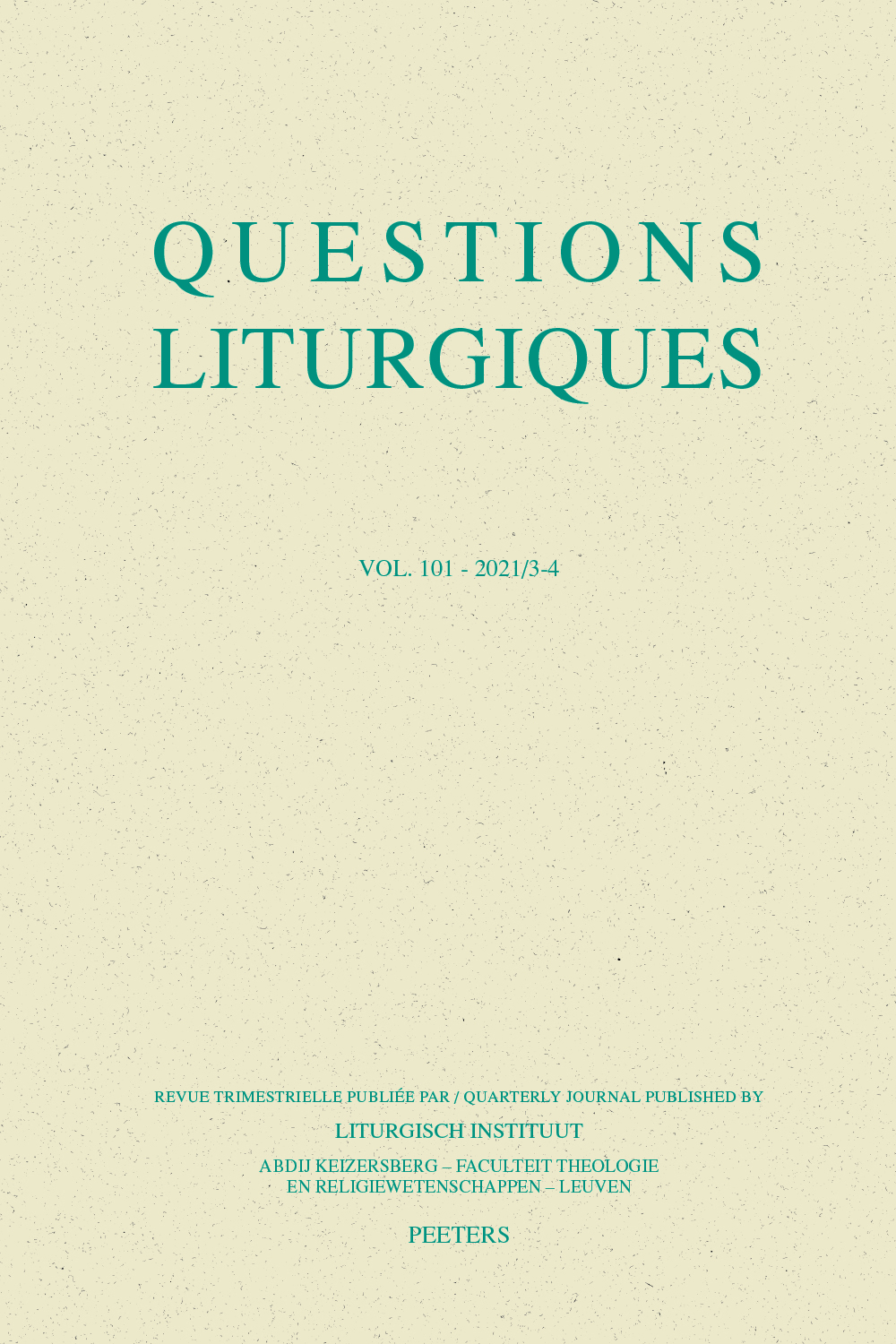 previous article in this issue previous article in this issue | next article in this issue  |

Preview first page |
Document Details : Title: Baader and the Necessity of Christianity's Sacramental Principle Author(s): GELDHOF, Joris Journal: Questions Liturgiques/Studies in Liturgy Volume: 90 Issue: 2-3 Date: 2009 Pages: 106-119 DOI: 10.2143/QL.90.2.2042626 Abstract : In this paper I argue that the Christian religion cannot do without a sacramental principle. This is basically understood from an incarnational perspective: the lived faith of Christian believers must necessarily take shape in ritualized celebrations performed by concrete communities in a variety of different contexts, times, and places. Theologically, the incarnation of the Son of God in the man Jesus serves as the model or the paradigm for the sacramental principle: it is the whole Christ event which is enacted through the sacraments and the liturgy. To build up the case for this line of argument I draw inspiration from Franz von Baader (1765-1842), a Catholic intellectual situated within German romanticism. In particular I appeal to some of the assumptions involved and explain how a metaphysics of permeability might contribute to giving an adequate account of Christianity’s sacramental principle. I also explain why Baader thought it useful to oppose different deviations from this principle, and why he identified them with some brands of Protestantism. This is an inappropriate move, of course, without giving voice to Protestants themselves. So in the paper I draw attention to F.W.J. Schelling’s position and compare it with Baader’s. I conclude by suggesting that a balanced understanding of the sacramental principle is essential to an important contemporary concern that exceeds denominational boundaries, namely to care for the intelligibility of Christian faith and a right balance between faith and reason. Dans cet article je soutiens la thèse qu’un principe sacramentel est indispensable pour la religion chrétienne. Il faut comprendre ce principe à la base d’une perspective de l’incarnation: la foi vécue des chrétiens doit s’incarner dans des célébrations ritualisées, effectuées par des communautés concrètes dans des contextes spatio-temporels très variés. Théologiquement, l’incarnation du Fils de Dieu dans l’homme Jésus sert de modèle ou de paradigme du principe sacramentel: c’est l’événement christique dans sa totalité qui s’établit à travers la liturgie et les sacrements. Je présente l’argumentation en faveur de cette thèse par un renvoi à la pensée de Franz von Baader (1765-1842), un intellectuel catholique qui se situe dans la sphère du romantisme allemand. Je relève en particulier quelques propositions concernées et j’explique comment une métaphysique de perméabilité peut contribuer à fournir une interprétation adéquate du principe sacramentel du christianisme. Je rappelle ensuite pourquoi Baader l’a utilisée pour s’opposer à différentes déviations de ce principe, et pourquoi il identifiait certaines branches du protestantisme avec lui. C’est une attitude inappropriée, en effet, de ne point écouter la voix même des protestants. Aussi dans cet article j’expose la position de F.W.J. Schelling et la compare avec celle de Baader. Je conclus en suggérant qu’une compréhension équilibrée du principe sacramentel est essentielle en vue d’un souci contemporain de surmonter les limites des diverses confessions, par souci de l’intelligibilité de la foi chrétienne et d’un équilibre entre foi et raison. |
|


